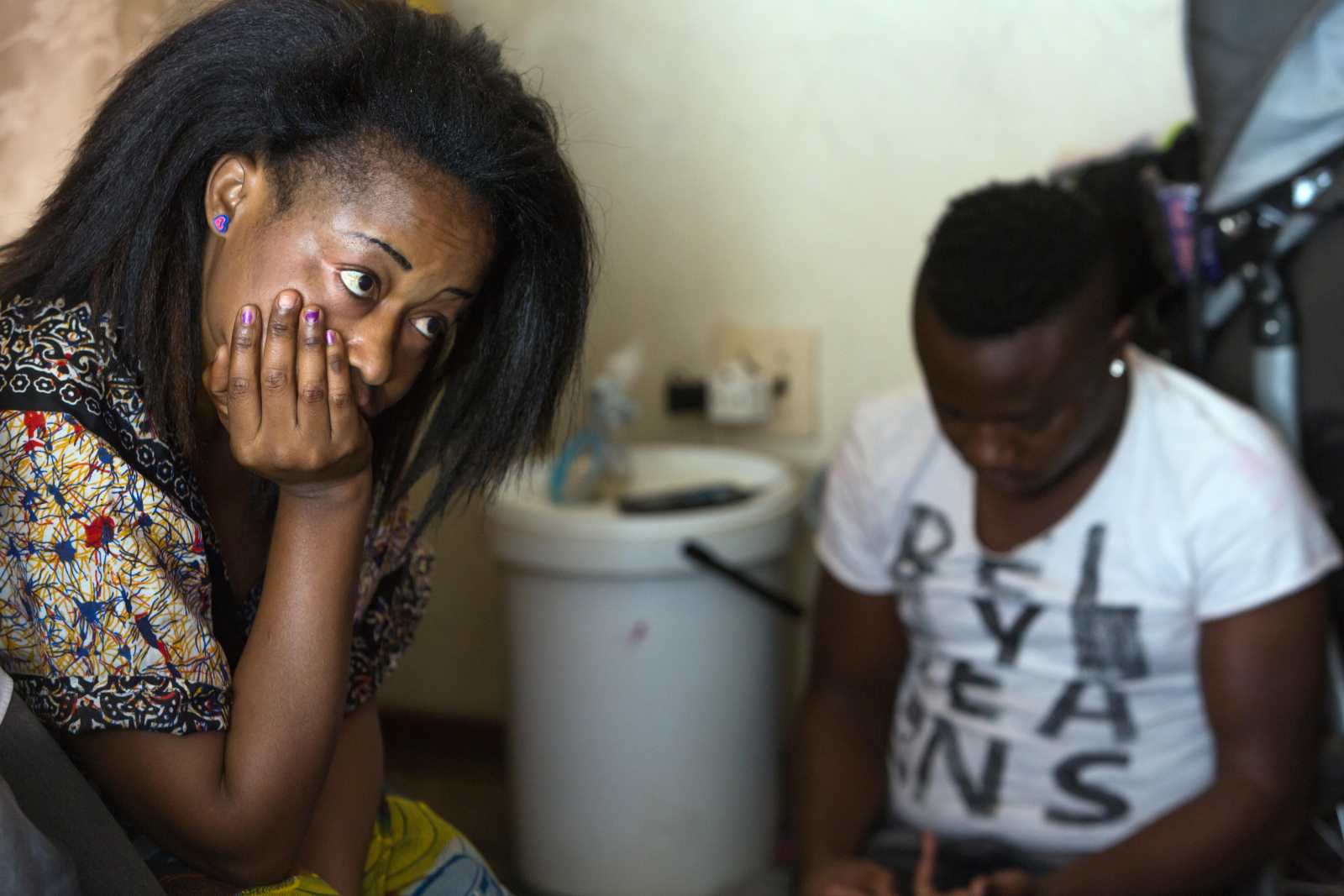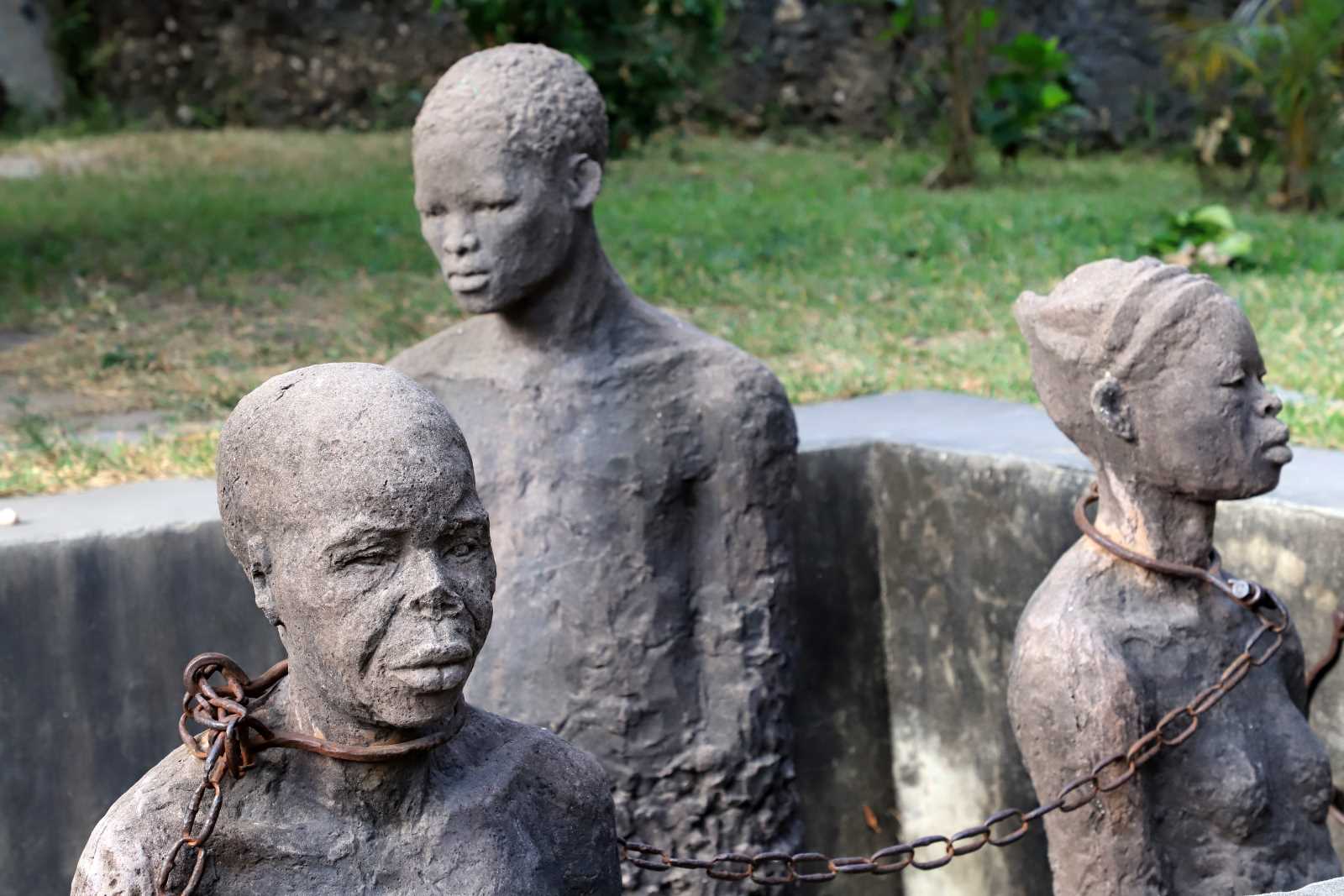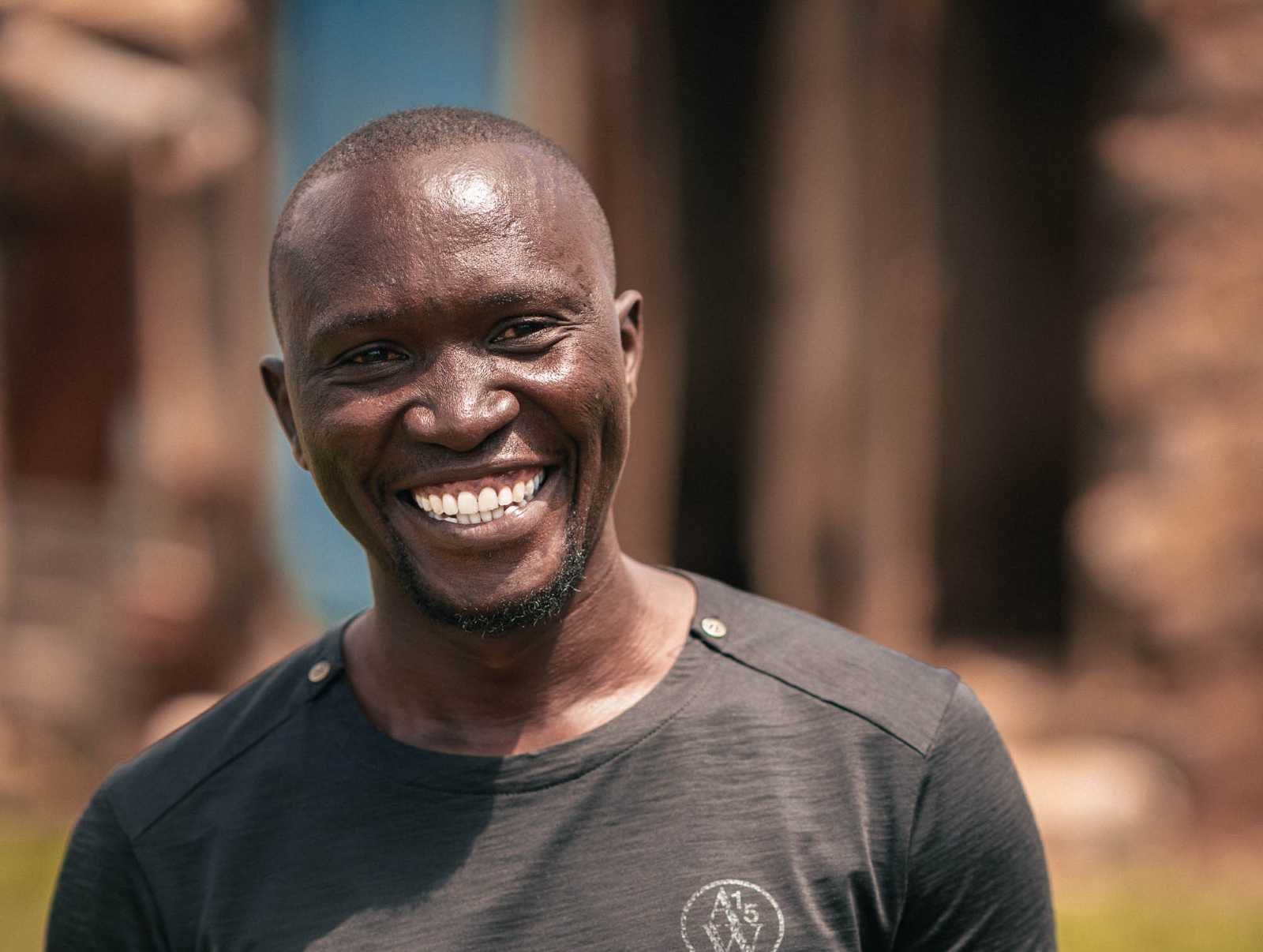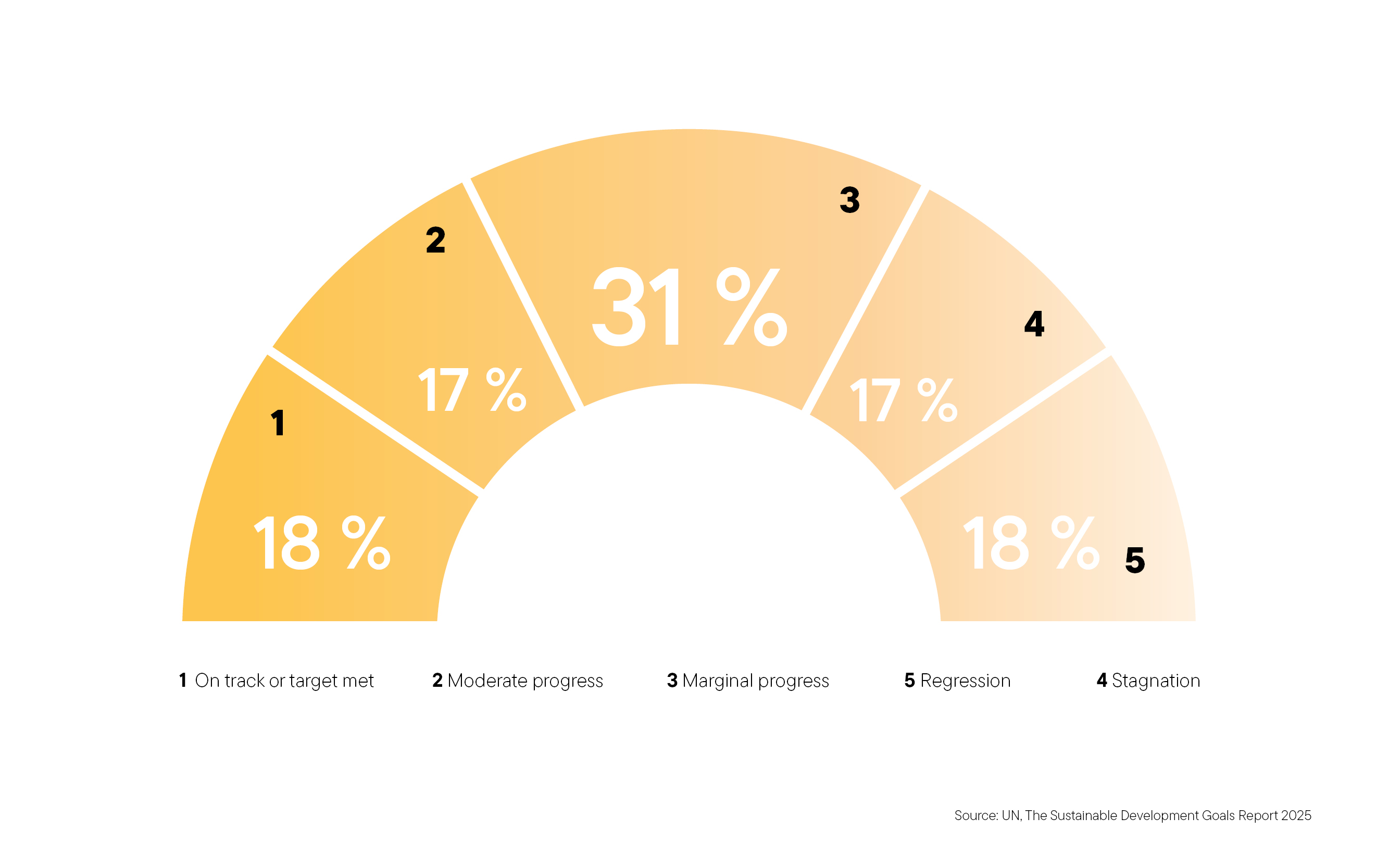Labour migration
What it’s like to move from Africa to the Gulf States for work

As is often the case, it took a large sporting event to draw sufficient attention to glaring injustices. Three years ago, the world watched the men’s football World Cup being played in Qatar in stadiums that Amnesty International claims were partly built under conditions similar to forced labour.
In the vast majority of cases, the work was done by migrants – and their labour conditions were often deplorable even before the World Cup. Human Rights Watch reports that in 2019, an estimated 95 % of Qatar’s working population came from abroad. The situation is similar throughout the entire region: According to the Economic Research Forum, migrant labourers made up almost 70 % of the workforce in the Gulf States last year.
The workers come from all over the world. At the same time, the share of African migrant labourers has been growing for years in the low-wage sector in particular (construction, security, domestic work, hospitality) – and with it reports of human-rights violations. Employers confiscate passports, wages go unpaid, and food and freedom are withheld as punishments. Women, who often find employment as domestic workers, in particular report physical and sexual violence. According to a report by the New York Times, 274 Kenyan workers, most of them women, have died in Saudi Arabia alone in the last five years. In Kenya, newspaper reports regularly appear when families receive their relatives in coffins from Gulf airlines at Nairobi airport.
In the Labour Rights Index 2024, Qatar received a score of 47 (“total lack of access to decent work”) and therefore is one of the nine countries with the worst working conditions in the world. The United Arab Emirates (UAE) also only received a score of 55.5 (“basic access to decent work”).
It says something about living conditions in African countries that more and more people are nevertheless deciding to venture a new start in the Persian Gulf. The number of Africans working there can only be estimated, since many are temporarily or irregularly employed, and not all are registered with embassies.
In all the Gulf States, Kenya is among the countries that supply the highest number of African workers. Kenya’s Prime Cabinet Secretary, Musalia Mudavadi, mentioned last year that over 400,000 Kenyans are employed there.
D+C spoke to two of them. During those conversations, it became clear that experiences of exploitation are only one side of the coin. For many Africans, migration means a fresh start, opportunity and self-determination. They become the main breadwinners of their extended families at a young age, but at the same time are pursuing their own career goals.
Felicitas
Felicitas has lived and worked in Dubai for almost two years. The 28-year-old is employed as a waitress in a five-star hotel there. The Kenyan woman originally had different professional goals: She earned a diploma in civil engineering and afterwards worked at a World Bank-funded building site that was supposed to become a wholesale market. But the Covid-19 pandemic changed the course of her life.
The building site was at a standstill for months, and ultimately her contract was terminated. She had never felt comfortable there anyway. Construction is a male-dominated industry, she explains, and interacting with her colleagues was often difficult: “I was in my early 20s, and the men didn’t want to listen to anything I said.” It was a stressful situation that was only made worse by the knowledge that she would never be able to complete a bachelor’s degree without financial support. In Kenya, a bachelor’s follows a diploma; without it, she would have a much harder time advancing in the construction industry. So, she decided to look for work abroad.
First, she went to Saudi Arabia, where she worked for five months for a clothing company that made caftans. As an African woman, however, life there was difficult to bear: “As a woman, I couldn’t go anywhere on my own, couldn’t wear what I wanted and was more or less locked in the house.” When the mall where she worked stopped allowing African employees on the premises, forcing her to work at a private home instead, she decided to return to Kenya.
But since job prospects were still dire in her home country, she followed a friend’s advice and took a barista course, hoping that it would help her find work in her new destination, Dubai. About two years ago she travelled to the UAE. Back then, the visa process was less complicated than today. Felicitas could look for work on a two-month visitor’s visa. Nowadays people from Africa are subject to greater controls, she reports.
The cost of living is high in Dubai: During her first few months, Felicitas lived in a dormitory and paid around $ 100 a month for her bed. Now she shares a larger apartment with a colleague – an improvement that she has her permanent position to thank for. Without it, she also would never have received a permanent visa. In the beginning, she kept her head above water with short-term waitressing jobs. After each contract ended, her visa threatened to expire, and every day a visa is overstayed in the UAE is punished with a hefty fine. She managed to only have to pay ten penalties, she says, before she found permanent work.
Still, the financial strain is high. Felicitas supports her mother, sister and a brother in Kenya, for example by paying school fees. “I am now the breadwinner in my family,” she says. She does not want to return to Kenya permanently. “I don’t miss my country,” she says, explaining that the political and economic situation have only gotten worse. She can only imagine returning for a visit at the moment – but she does not have the money for that right now.
She also received important support from African networks in the Gulf: “When someone hears that their restaurant is looking for staff, they pass it on.” Thus, informal chains of referral emerge. Contact with other nationalities is harder, she says; people often live in separate residential areas. She reports that in Dubai, there are clear social divisions between different nationalities. She doubts, for example, that she has ever had contact with native Emiratis, who stand at the top of the country’s multinational hierarchy.
Her experiences with racism and discrimination are diverse. “There are moments when I notice that people only see me as cheap labour,” she says. “For example, if I want to buy something expensive in a shop, people look at me suspiciously. And on the bus, people next to me have literally held their noses when I sat down.”
Despite these experiences, she is following her plan: “I don’t want to be a waitress forever. My goal is to save enough money to build a house in Kenya and start my own business – maybe in the fashion industry.” She can also picture working on a cruise ship: “I didn’t leave Kenya just because of money. I like to travel and discover new countries.”
Joseph
Joseph, a 25-year-old Kenyan, works in Doha, Qatar – also in hospitality, or more specifically in a café. He has a professional qualification, too: an IT diploma, which he has not yet been able to apply to his work. For him, migrating to the Gulf State was an attempt to reshape his professional future – and to support his family financially.
“I want to help my siblings and ease my parents’ burden,” he explains. He reports that Kenya and Qatar are very different – not only with regard to economic opportunities, but also culturally. Complying with religious regulations and the general rules for living in Qatar was stressful at first. The long working hours were burdensome, too, as was the psychological pressure to earn and save as much as possible.
He was able to emigrate thanks to a friend in Kenya who supported him during the visa process. Joseph calls for more transparency in visa and application procedures. “A lot of people get cheated by agencies,” he says. In the beginning, he had no networks in Qatar and only had himself to rely on. Only after several failed attempts – including interviews for non-existent jobs – did he find a permanent position.
Joseph is leaving the possibility of returning to Kenya open. “Kenya will always be my home, and I get emotional when I think about my family,” he admits. “I haven’t seen them in three years.” But he also says that living abroad has changed him. He thinks it would only make sense to return if he had an opportunity there.
Joseph also hopes to advance professionally – possibly in the direction of hospitality management. Long-term, however, he wants to make use of his IT skills again or start his own project. For him, as for Felicitas, the Gulf States are primarily a place to save money and prepare for the next step.
Both Felicitas and Joseph stress that pay in Qatar and the UAE is unfairly distributed. According to them, employees from Africa receive significantly lower wages than colleagues from other countries – even if the Africans have the same or higher qualifications. “We don’t talk about it openly, but the difference is striking,” says Felicitas.
Names have been changed by the editors.
Alba Nakuwa is a freelance journalist from South Sudan. She lives in Nairobi.
albanakwa@gmail.com
Katharina Wilhelm Otieno is an editor at D+C and works in Nairobi at times.
euz.editor@dandc.eu

















